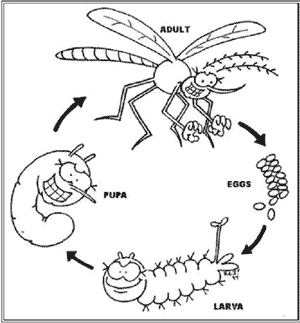Do you recall in 7th grade biology (Life Science) class you learned about the life span of a mosquito or some other annoying instinct. There was a video (at least in my 7th grade) where you watched the fly hatch, become larva, reproduce and die quickly. Usually it only took 1 class period to discuss.
Anyway, as I thought I of non-compete agreements this morning, it reminded me of that video and mosquitoes. Why the connection? Because I think each are annoying hindrances to enjoying one’s life to the fullest. Seriously.
So, what does the Life-cycle of a non-compete agreement look like?
Day 1: Agreement is drafted (by either protectionist employer or attorney)
Day 1-365: Agreement is presented to employee (in Virginia, this can be done at any time, from the day you start, until year 30 of employment).
Employee is told they can sign or be fired. Few are allowed to negotiate.
Day 2-1200: Employee decides to leave employer for green pastures.
Day 1201: Employer and or his overpriced attorney draft a cease and desist letter to the employee threatening a lawsuit.
This is where the life-cycle of a non-compete agreement gets confusing. Traditionally, in nature, these agreements take 1 of 3 paths:
Path 1: Everyone is full of hot air, and no legal action is taken – just threats.
Path 2: Employer sues, asking the Court to enjoin the employee from working. A preliminary injunction hearing is held and Court decides whether or not employees actions are harmful, etc.
Court either enjoins, or does not enjoin the work – and a hearing is scheduled on the merits of the case for months away. Eventually a judge or jury (or arbitrator) rules on the merits of the action and whether or not the employee caused any actual financial damages to employer, and rules whether the agreement is reasonable at all.
Path 3: Litigation begins and everyone burns out, spends too much on attorneys fees, and a settlement agreement is reached out of court – with new terms of how the employee will and will not act.
What determines whether or not your non-compete agreement is on Path 1, 2 or 3? Usually it depends on (1) the nature of your actions; and (2) the ego of your employer. No seriously. Ego is everything in these cases, coupled with how you may or may not have breached the agreement.
I am not a biologist, or a social scientist, but as an attorney with experience, I can usually tell you what may happen in your case (ie – litigation, or not). Want to know the life-cycle of your employment agreement?
Dan and I don’t have a 45 minute video on the subject yet, but we do have a book, and time to help employees one on one.

